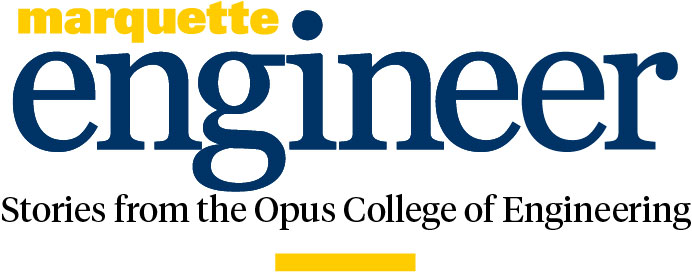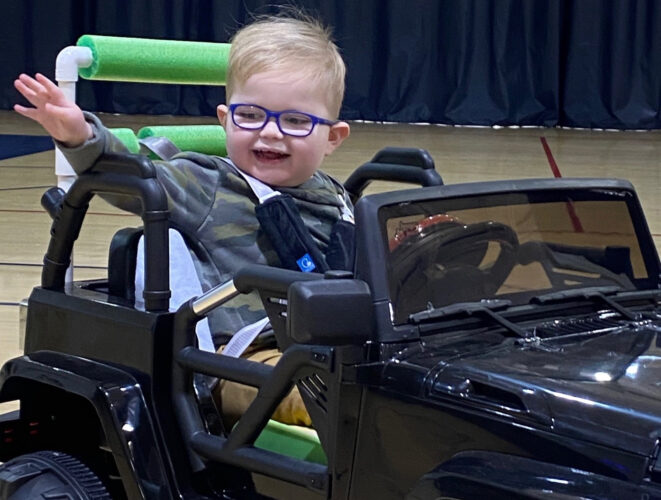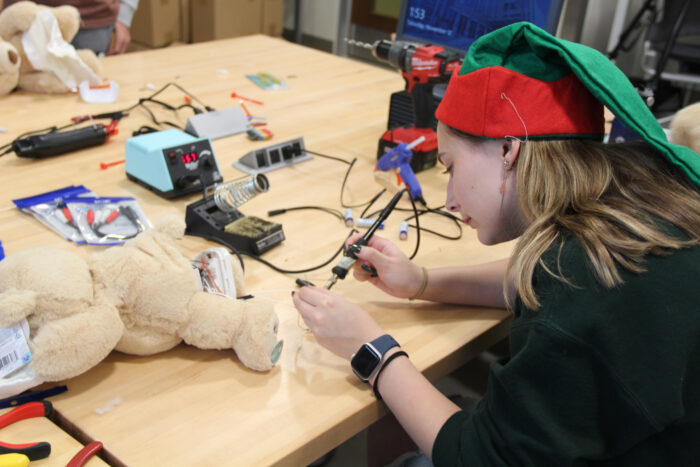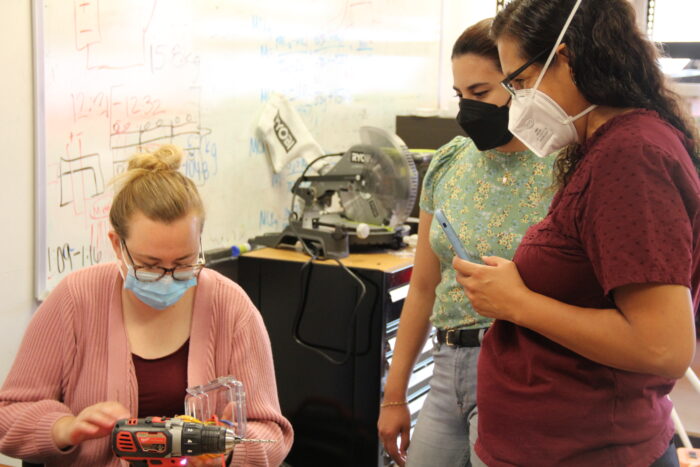Imagine someone who tinkers with children’s toys year-round in a tucked-away workshop, travels to all corners of the globe and dedicates their work to serving children and families.
Now ignore any famous North Pole residents and consider a pair of Marquette engineers operating a similarly joy-filled operation a few thousand miles south in Wisconsin.
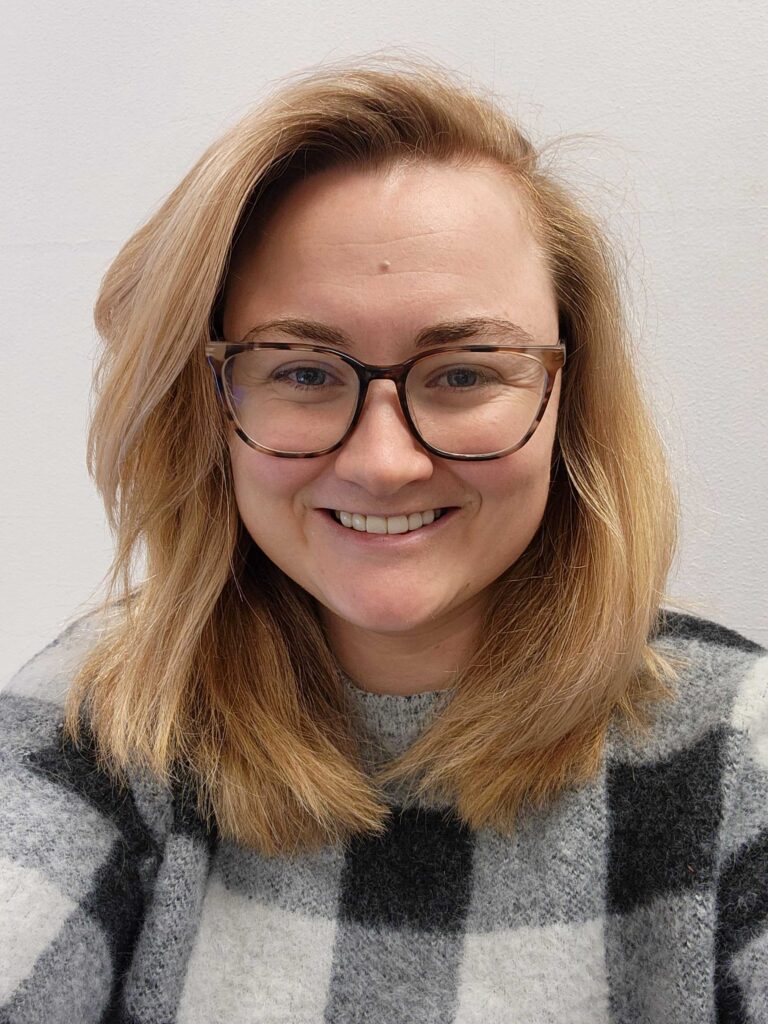
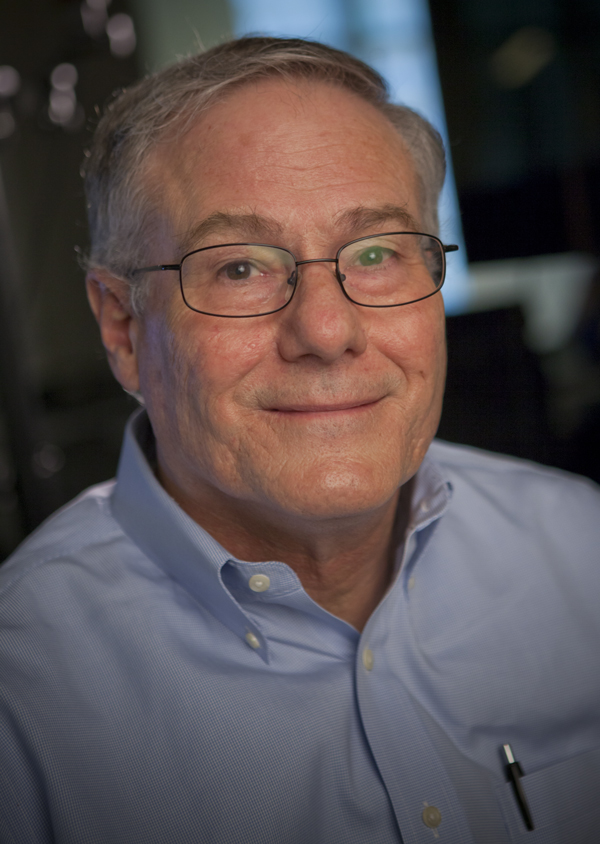
Play is work and work is play for research engineer Molly Erickson, Eng ’18, and Dr. Gerald Harris, Grad ’78, ’81, two alumni graduating 40 years apart who drive community outreach initiatives for the Marquette and Medical College of Wisconsin Orthopaedic & Rehabilitation Engineering Center (OREC), a conglomerate of research laboratories specializing in motion analysis, sports medicine, biomaterials and histology, and orthopaedic biomechanics that Harris co-founded in 1989.
Harris, professor emeritus of biomedical engineering, describes a switch that flips in his head whenever he sees a child in need — a feeling he’s had since he first met a child with cerebral palsy during his graduate studies at Marquette in 1978.
“It’s the core Jesuit identity. It’s service to others that drives everything,” Harris says. “This is a vocation you dream about, because it integrates all these higher order things that we strive for and makes it something that we can actually realize.”
Erickson echoes similar engineering sentiments. “When families are so excited to get a ride-on car, adapted toy or new quality of life, it is really motivating,” Erickson says. “Getting to help them and serve them in any way is really rewarding.”
Together, Erickson and Harris devote their engineering problem-solving passion and technical expertise in three programs that improve daily life and independence for children with varying mobility and developmental challenges.
Compelled to serve and solve
Drawn to complex challenges with high potential for real value, Harris and Erickson have collaborated with physical and occupational therapists from Children’s Wisconsin to drive the Go Baby Go! Milwaukee program since 2016. The program provides free modified ride-on cars for children with mobility needs as a way to unlock more ways to move, engage with others and feel some independence.
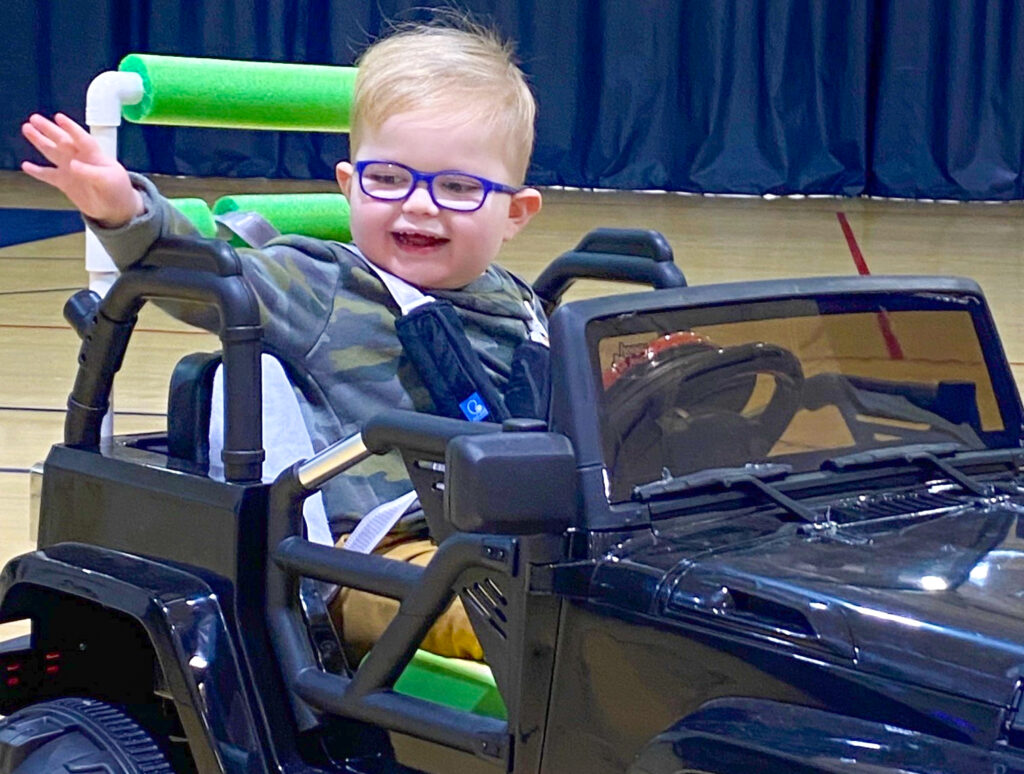
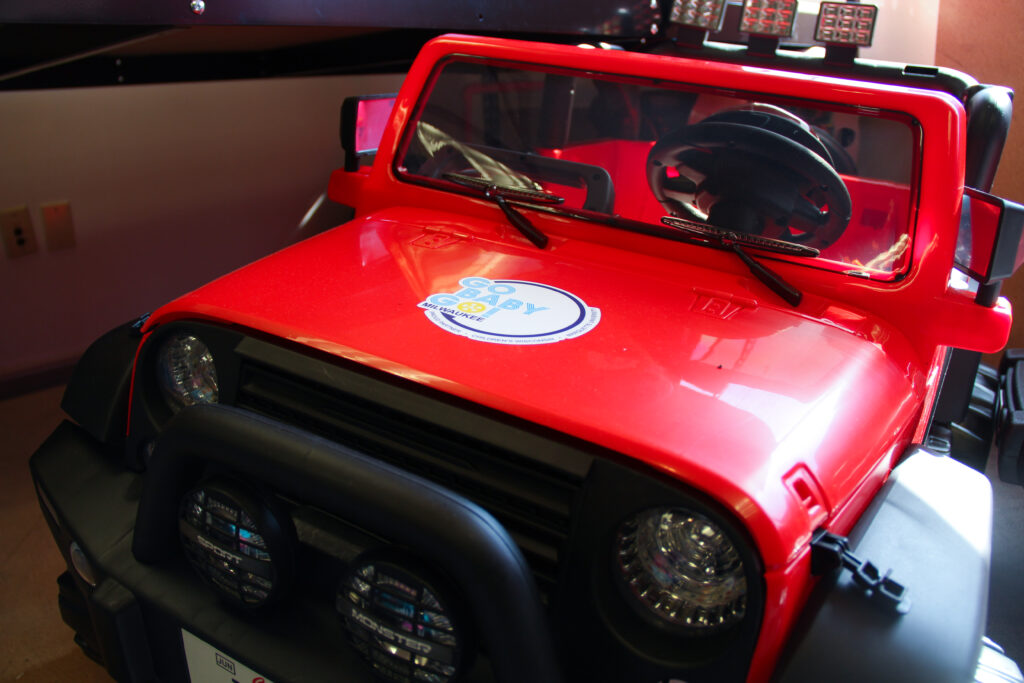
Children’s Wisconsin therapists determine the right customizations to support each child’s specific needs, and Erickson leads the technical design and modification of vehicles.
“Dr. Harris and Molly Erickson love being presented with a challenge and then the freedom to help solve it,” says Allison Friel, an occupational therapist with Children’s Wisconsin who helps lead Go Baby Go! Milwaukee. “The network of professionals they have access to for consultation as well as their own work experiences have allowed them a robust catalog of resources to tap into as needed.”
Not only does the work have meaningful impact for children and families, but it’s especially rewarding for engineers who want to grapple with unique or complex challenges.
“On a more selfish side of it, my engineering brain loves it,” Erickson says. “The therapists are always pushing me to see what else we can do. The engineering side of me is always finding a new challenge to solve.”
She lights up describing a recent challenge to design a car for children with impaired-vision — adding LED lights, changing wiring configurations, and adjusting battery needs are just a sample of the design decisions that get her brain firing.
Solving capacity problems by inspiring others to serve
The success of the partnership and growing awareness has one drawback: a growing waitlist.
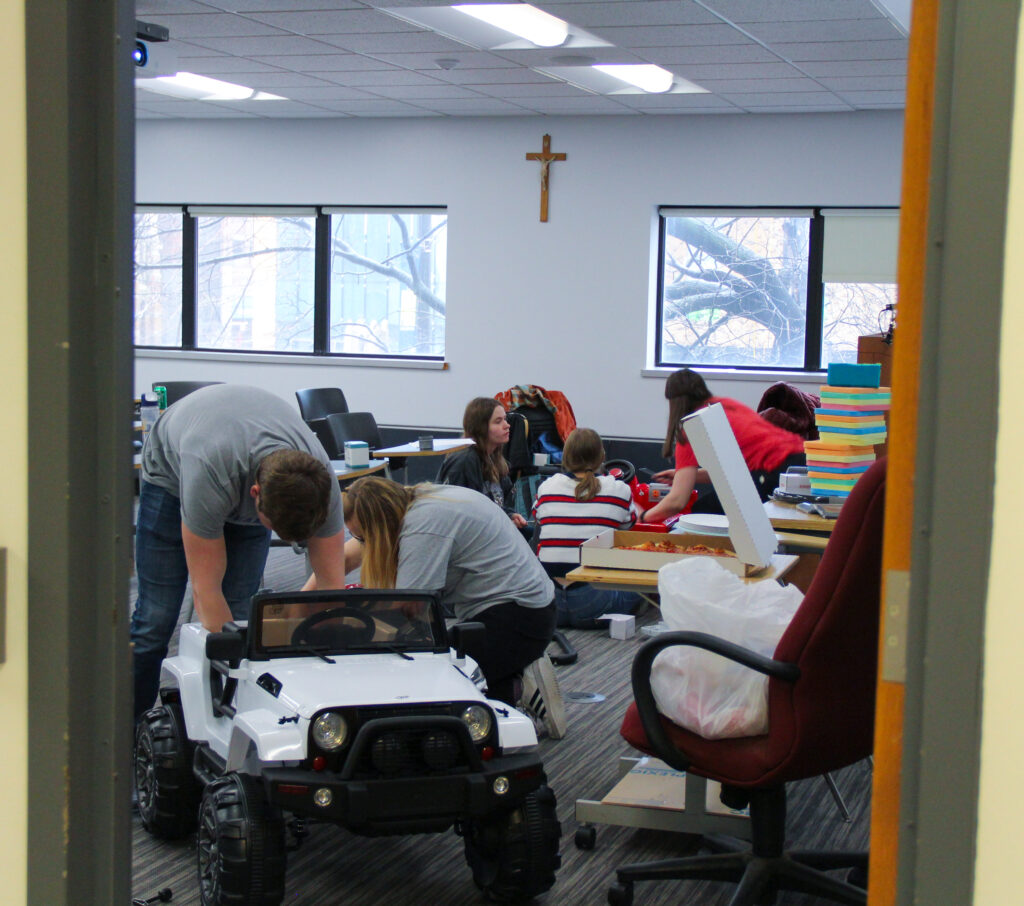
Originally modifying each car herself, Erickson found a way to expand capacity by involving undergraduate engineering students and, later, local high school students from FIRST Robotics teams to help modify cars. For the cost of a few pizzas in an open classroom, more projects were completed as Erickson provided expert oversight for electrical modifications and students practiced their technical skills, motivated by hands-on work that provided real value for others.
“The combination of giving back to the Milwaukee area, expanding on valuable engineering and leadership skills, and building a sense of community gives me a chance to put into action some of the values that led me to choose Marquette University in the first place,” says Drew Donahoe, a Marquette biomedical engineering student who has worked on OREC projects for multiple semesters.
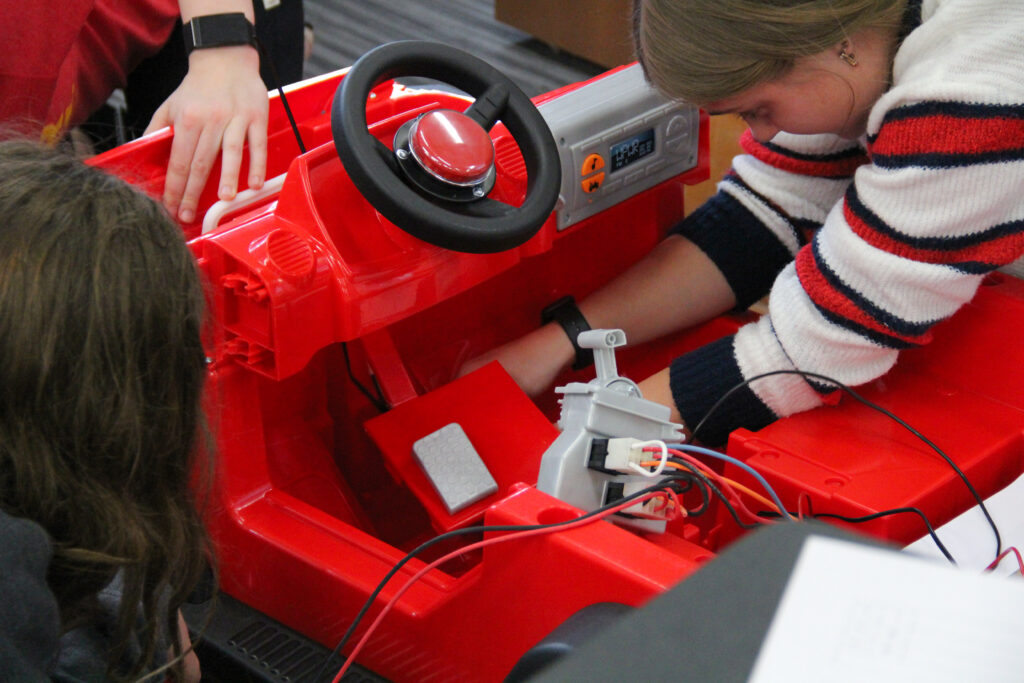
To date, Go Baby Go! Milwaukee has deployed 304 cars, and Erickson is in nearly non-stop production of the cars.
Going global with mobility support
While working to expand the fleet of Go Baby Go! cars in Wisconsin, Harris and Erickson also provide support for OREC’s Global Outreach Gait Labs, which establish state-of-the-art facilities around the world for clinicians to serve large populations of children with gait complications. The data provided in these labs help doctors more effectively treat children with neuromuscular issues of all types, from cerebral palsy to clubfoot to spina bifida.
This work requires Erickson to step away from her workshop and travel internationally to establish new labs and support expansion of existing sites, allowing OREC to serve an immeasurable number of children worldwide. Erickson currently supports six facilities with two more anticipated in 2024.
Toys seek a workshop
Despite a growing travel itinerary for gait labs and a full garage of Go Baby Go! Milwaukee cars to modify, Harris and Erickson entertained another collaboration last year: making adaptive toys with Penfield Children’s Center. Penfield had toys and families to serve, but they needed an expert workshop.
“When we first talked about the adaptive toys project, Dr. Harris asked me about my bandwidth,” Erickson says. “I had some ideas of how we could make it work with students, and next thing I knew we were outlining a solution to make it happen.”
On average, store-bought adaptive toys are 400% more expensive than traditional toys, but through Erickson’s technical know-how, a simple therapy switch can be wired into almost any traditional toy and then donated for use by therapists and families — giving children more ways to engage in play and develop motor, cognitive and social skills.
Borrowing the student build-day model, Erickson organized two adaptive toy build days with Penfield involving students from five high schools, professional engineering mentors helping with FIRST Robotics, Marquette graduate and undergraduate students, and volunteers from both institutions — all wearing elf hats as they worked merrily to adapt more than 140 toys for Penfield.
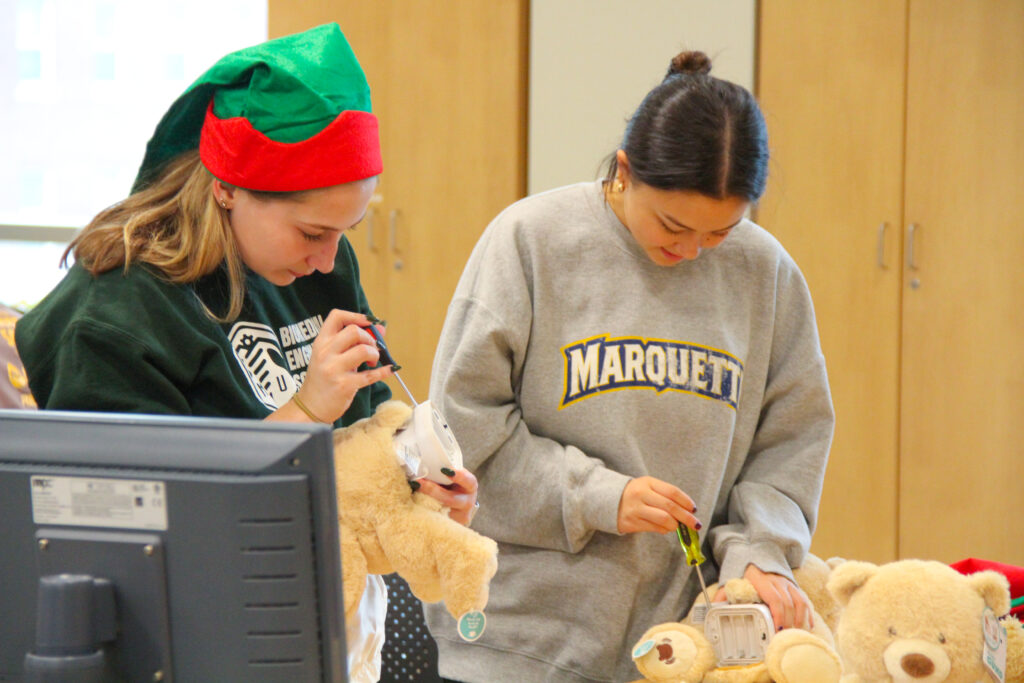
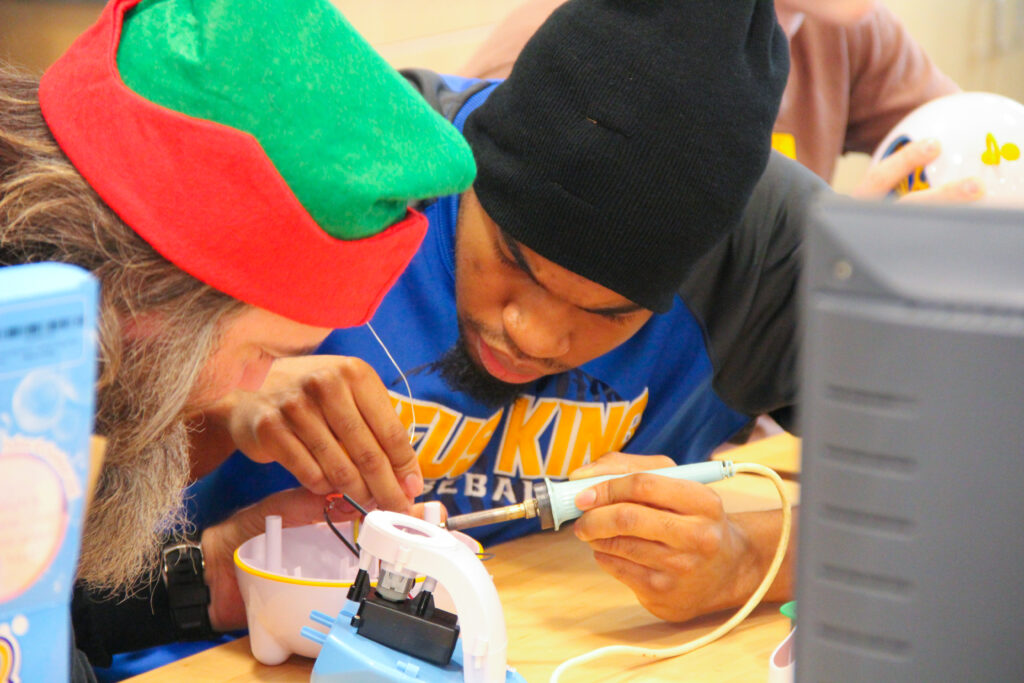
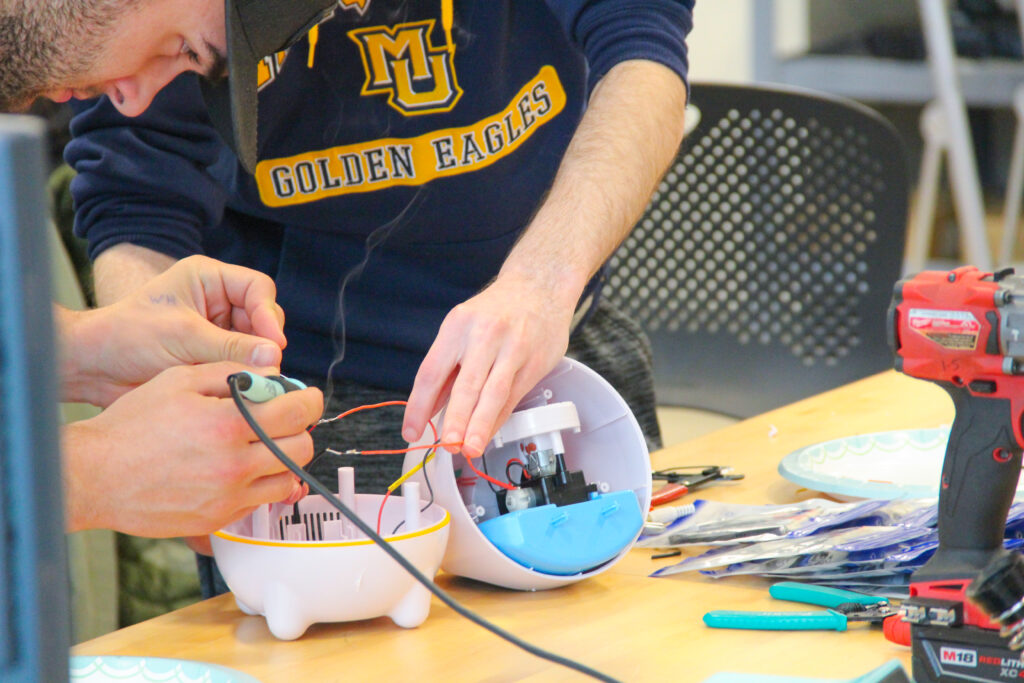
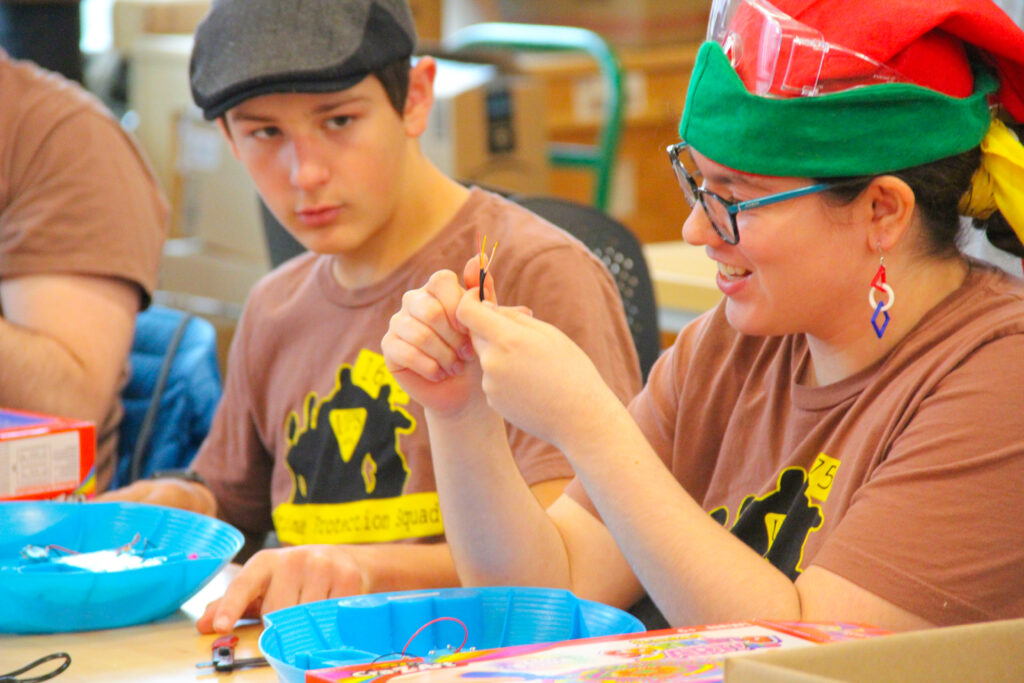

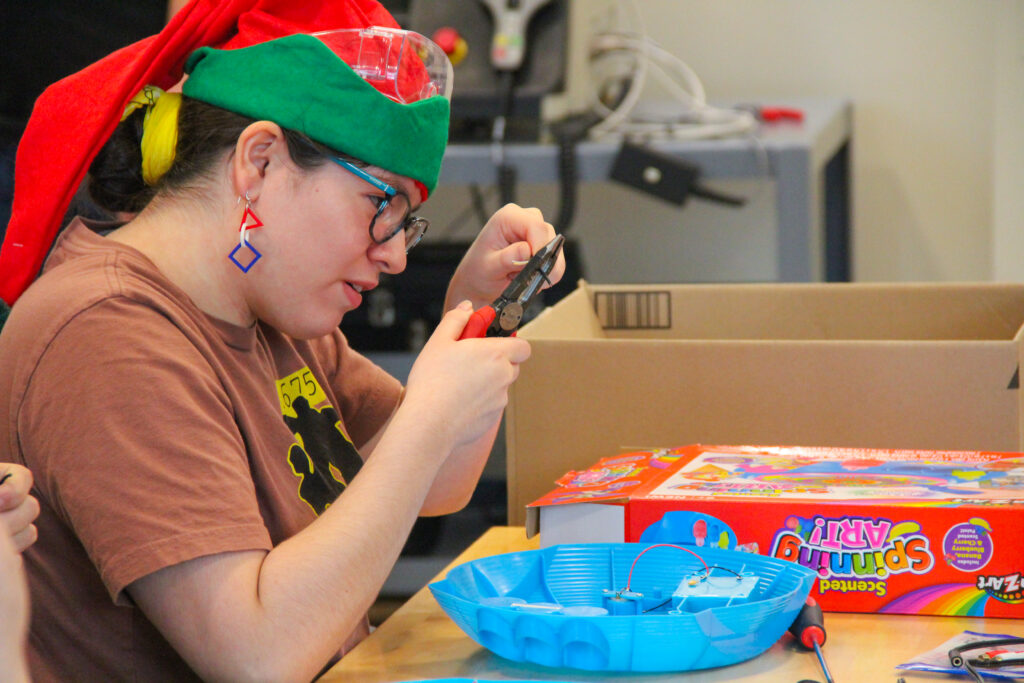
“Our robotics team’s philosophy is for students to learn in an environment where they can try new things and are very supported by their adult mentors if they need help or guidance,” says Rebecca Ruechel, lead mentor for a FIRST Robotics team of students from Bradley Tech, Ronald Reagan and Rufus King high schools in Milwaukee. “Toy build days are a great example of that. They are learning a new skill and are surrounded by their mentors plus Marquette students who can guide them if they need it.”
Ruechel adds that the high schoolers bring an infectious energy to each build day and push themselves to complete as many toys as they can. The team Ruechel mentors has since begun experimenting with other adaptive technology projects — a testament to how easily that engineering service switch can be flipped.
“With the adapted toys, I see kids make sounds and react in ways they haven’t before, and it helps parents realize other ways to engage with their children that bring joy and happiness to both kids and parents,” says Vladimir Bjelic, H Sci ’11, a speech-language pathologist at Penfield Children’s Center who helped launch the collaboration. “It has been amazing to see how the therapists have jumped on board and have been using these toys and bringing them to families’ homes for therapy sessions.”
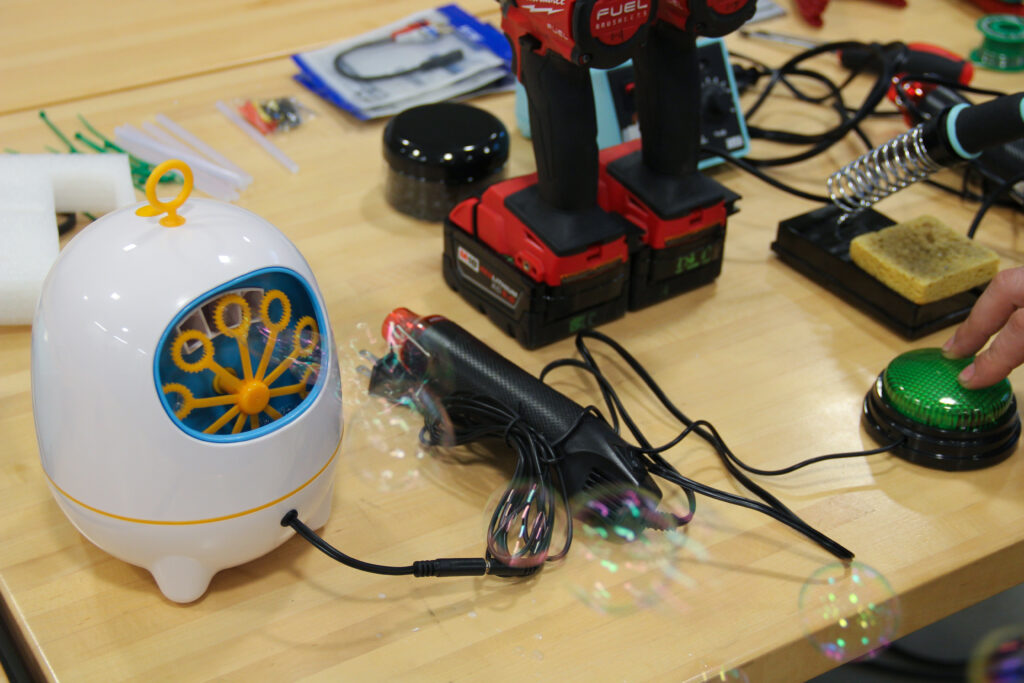
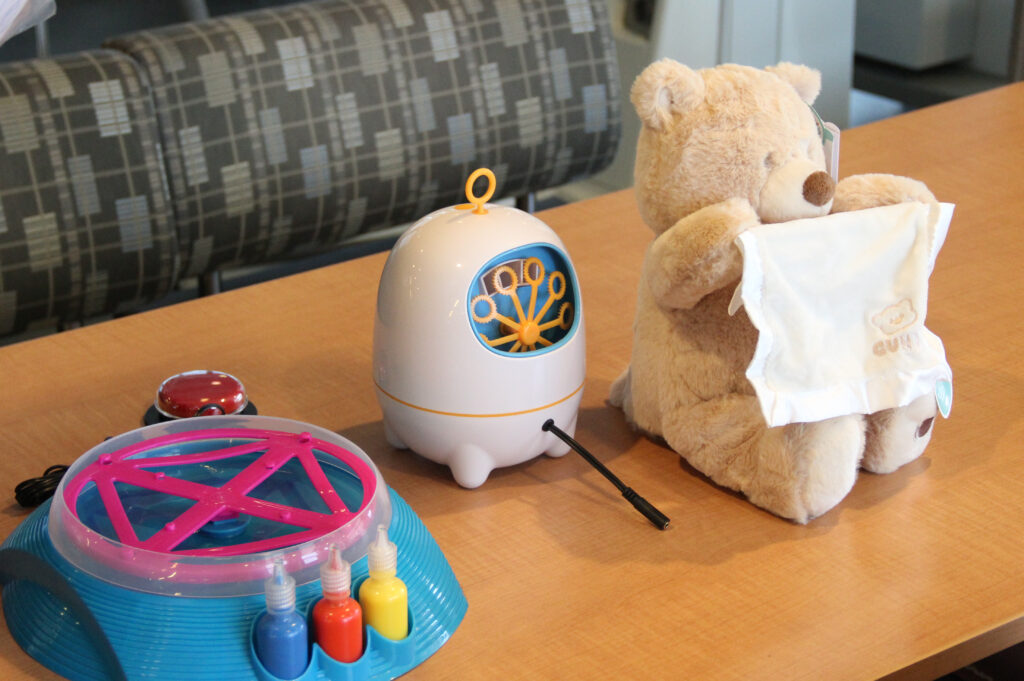
Erickson’s engineering mind is pushing the limits further for the next Inclusive Play: Toys for All build days in November by including Marquette occupational therapy students and increasing the goal to 260 adapted toys.
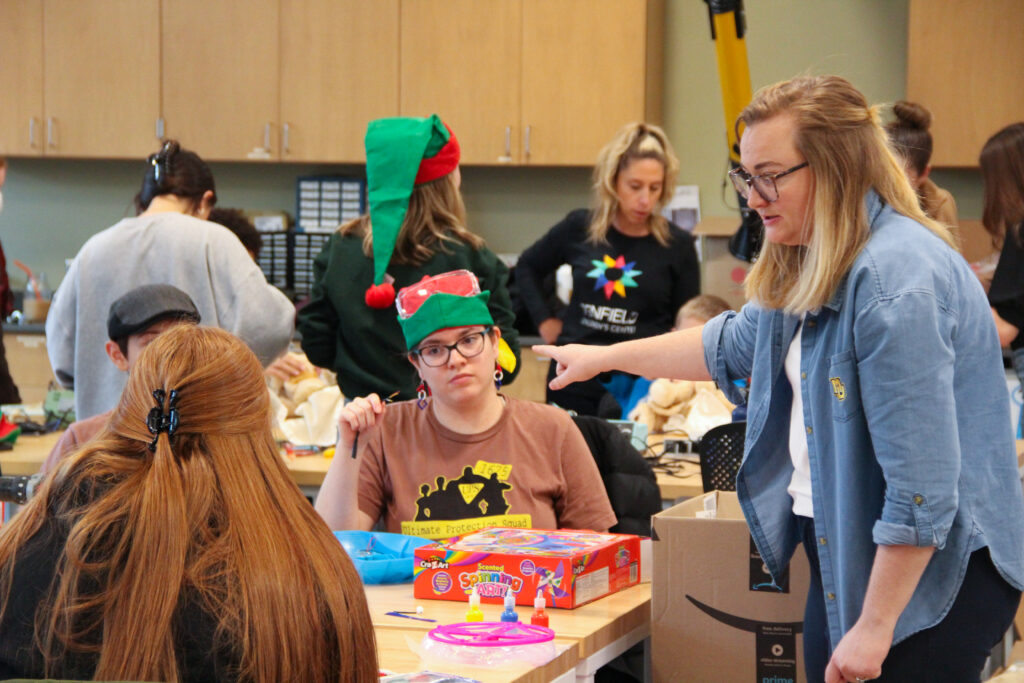
Empowering others to serve
Erickson and Harris are quick to compete with themselves to expand the reach of their work, but that is where the competitiveness ends. On the contrary, they are already helping other higher education institutions, international groups and startup toy workshops replicate OREC’s work and take it further.
For Erickson and Harris, more children at play is the name of the game, and their Marquette engineering passion for solutions and service will not let them quit. They know that if there is a will, there is always a way.
Interested in supporting efforts like this from the Orthopaedic & Rehabilitation Engineering Center (OREC)? Please contact Karlyn Agnew, director of development, to discuss your giving options.
